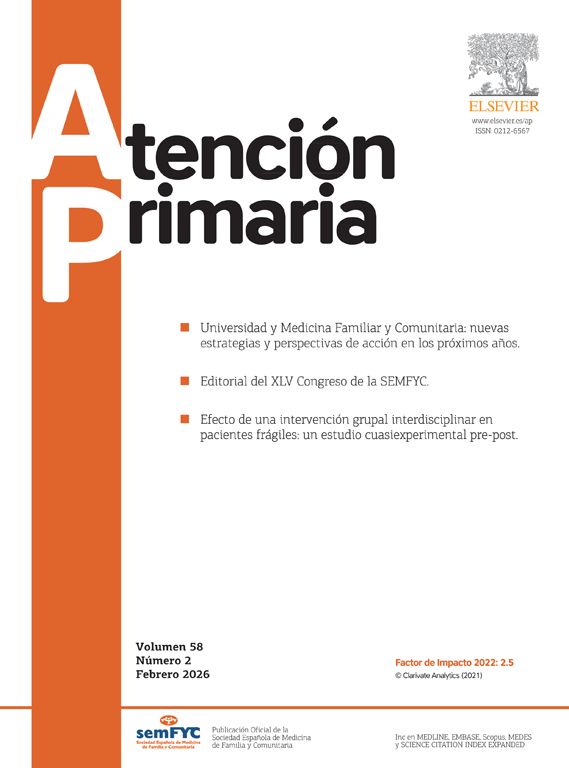The process of deprescribing has mostly been associated with chronic diseases, as it is increasingly recognized that many old people take many medications, which are often unnecessary. A recent special article published in this journal clearly emphasizes the benefits of deprescribing antihypertensives, antidiabetics, statins, benzodiazepines, antidepressants, proton pump inhibitors, anticholinergic medication, cholinesterase inhibitors, neuroleptics and bisphosphonates.1 However, deprescribing can also be considered in patients with acute conditions. Antibiotic deprescribing is a relatively new strategy that consists of recommending patients to terminate an antibiotic course before scheduled time because further treatment may cause more harm than benefit. This strategy has been shown to be safe and effective in a recent clinical trial performed in Catalonia in which the mean duration of severe symptoms for uncomplicated respiratory tract infections was similar in the group of patients who discontinued antibiotic therapy and among those who completed the therapy.2
García Pliego et al.1 clearly state that medication courses should be stopped when efficacy is not supported by clinical trials or in absence of a clear indication for their use. There is no doubt that when antibiotics are needed, they are lifesaving drugs. However, Spaniards are awash with antibiotics. More than half of the patients with acute rhinosinusitis, acute bronchitis and sore throat seen in primary care are treated with antibiotics, despite the robust evidence of the marginal or non-existing benefit of prescribing antibiotics in these conditions.3 Similarly, antibiotics are overprescribed for elderly patients with suspected urinary tract infections, and very often without symptoms of infection.4 This high level of antibiotic consumption will inevitably have a long-term environmental impact, exerting a selective pressure on the countless organisms colonizing the patient. This selective pressure favors the survival and proliferation of antibiotic resistant microbes in mouth, intestines and skin, and these resistant organisms also colonize their close contacts. The problem of the antimicrobial resistance should not be underestimated. In 2019, about one half of the Escherichia coli and Klebsiella pneumoniae isolates in Spain were resistant to at least one antimicrobial group under surveillance.5
Antibiotics often pose special risks to older patients, and despite being these side effects are often mild to moderate, mainly affecting the gastrointestinal sphere, others can be serious. For example, fluoroquinolones increase the risk of tendinitis and tendon rupture, peripheral neuropathy or even drowsiness, particularly in older adults.6 In addition, the number of potential drug-drug interactions with antibiotics are vast.
The task of deprescribing a chronic medication might be complex as pointed out by Garcia Pliego et al., but this is straightforward when it comes to stopping an antibiotic course. We observed in a questionnaire-based study that more than 90% of the doctors reported having used at least once in their practice the strategy of antibiotic deprescribing (data not published). We also believe that this task should be mainly carried out in primary care, since family doctors together with nurses, are the health professionals who best know the clinical situation of the patients. In our clinical trial, two thirds of those who started antibiotic treatment saw their family doctors to ascertain reassurance of this treatment. A substantial number of patients in Spain might also have commenced an antibiotic course based on leftovers from the household or may have purchased antibiotics at a pharmacy without a prescription. There is no risk in stopping a course of an antibiotic once a bacterial infection has been excluded or is unlikely. We agree with the authors about the need to pursue effective deprescribing for chronic conditions, but we should not forget deprescribing antibiotic courses when these courses are not necessary, especially among old individuals.






